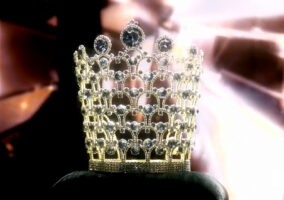Scott Wilson and Andrew Lincoln in AMC’s The Walking Dead
With a history of cycling through showrunners like they were red shirts on the Enterprise, it’s probably become something of a tradition for The Walking Dead‘s season premiere to be a mission statement for the story going forward; a declaration by the new guy that this is what it’s all about. And apparently the new Walking Dead is all about stating its themes openly and clearly, Mad Men-style, over and over again. Never name your pigs and never name your zombies. Also, guns don’t sprout food when you bury them. Or something.
Aw, we’re being cranky. We’ll start again:
With the title of this episode, we get a firm declaration of where we are and a not-so-subtle implication as to where we’re going. After all, this episode’s title lets you know just how safe everyone’s been for a while, but it also implies an end to that safety. At some point, the numbers need to be re-set, as they were at the end of this episode. But the staunch declarations don’t end there. The opening few seconds of the show depicted flowers growing, clean water, and birds singing – three things you pretty much never encountered in the previous seasons of the show. The prison is now a garden. No, wait. The prison is now a farm. No, that doesn’t quite sum it up either. With dozens of new faces milling about in both the foreground and background, offering a sense of purpose and camaraderie literally never seen in this world before, it’s clear what the prison really is. Civilization. Not the tense, fascist version attempted by The Governor, but something communal and cooperative; a place with “storytime” and work shifts. A place to literally bury your guns (because symbolism) and raise your children. But the guns will eventually get dug up (SYMBOLISM) and the farmer’s togs will eventually have to be shed for a sheriff’s hat and star (SYMBOLISM). This isn’t a zombie story anymore. This isn’t even a post-apocalyptic story. When you add all of these symbols and declarations up, every single one of these tropes (lawman-to-farmer-to-lawman, gardens in the middle of a wasteland, casual indifference to suffering and death underneath all the niceties, brave boys saying goodbye to their sweethearts) what you get is a classic western.
At the heart of most classic movie westerns is one story, told over and over again: a man brings the law to a lawless land. Civilization is formed out of nothing but grit, determination, and moral fortitude. Brave pioneers surrounded by a savage enemy are determined to build a schoolhouse or a church to keep them at bay. This is what we’re seeing with this first episode and of course, it’s all going to fall down around them. Classic westerns almost always end with the law asserting itself and civilization securing a foothold in the wild. The chances of that happening in this world are almost nil.
And that kind of frustrates us. We think we’d love to see a wild frontier town in the post-apocalypse trying to build itself into a community, but aren’t we all just sitting and waiting for the nihilism to take over again and burn everything to the ground? Again? In other words, it’s a given that the (relative) idyll that greeted us with this episode is soon to end. The barbarians are at the gate, literally.
But we wonder if that’s what we want out of this story; more burn-it-all pessimism. We’re not arguing for a hopeful, uplifitng zombie apocalypse, but one of the reasons we stopped reading the comic series the show’s based on was because of its unrelenting grimness; a moody adolescent’s take on human nature with no peaks or valleys; just a straight decline for humanity into hell. We’ve long wondered whether a television show with a much larger audience could or should sustain that kind of darkness indefinitely over its run. We wouldn’t want this to be an uplifting show in the traditional sense, but we’d like to see a show that doesn’t assume that any attempts by people to build something better is inevitably going to fail or be torn down by other people.
Having said that, it was a fairly enjoyable hour for the show, with plenty of eyebrow-raising moments, not the least of which was seeing Michonne joking and laughing, instead of giving us her usual scowl. The show hasn’t lost its knack for eye-popping action set pieces and the Big Lots showdown certainly qualifies, even if the particulars of how it happened are kind of vague. In this world, putting a wine bottle back on a shelf somehow causes a roof to collapse. In other news, the prison community – which, tellingly, doesn’t seem to have a name for itself (SYMBOLISM!!!!!!!) – is humming along nicely and everyone seems to get along with everyone else; a dynamic that no long-time viewer of this show believes is going to sustain itself. There’s even a “council” and everything. And they’re concerned about Rick, unlike us.
Seriously, creators. Rick Grimes is no Don Draper or Walter White. You can’t continue to hang the story around his neck because frankly, he’s never been that interesting a character. With the special focus he got in this episode, as well as the obvious farmer-to-sheriff plotline being set up, we’re kind of disappointed. This has never been the strongest of ensembles, and there’s been a huge turnover with each season, but there are enough strong characters and good actors to spread the story out a little more. Rick doesn’t need to be the center here. No one does. It’s a town.
If we sound skeptical, well… we mean to be. The Walking Dead is probably one of the most uneven shows on television right now. Each season has given us some amazing moments but each one’s also given us some “Oh, come ON!” moments too – and the latter moments threatened to overwhelm the show last season, turning Andrea into a flaming moron and the Governor into some sort of snorting supervillain. TWD season openers always look promising – and make no mistake, despite our slight bitching, this one does too – but we’ve been burned by the plotting too many times to be too optimistic. We like what we see, for the most part, but we’ll just have to see how it plays out. If they really go the classic western route, this could be entertaining. If its another angry teenager playing with action figures – like most of the last season – we’re gonna wind up questioning whether there’s a story worth telling here.
[Photo Credit: Gene Page/AMC]
American Horror Story: Bitchcraft Next Post:
American Horror Story: Boy Parts
Please review our Community Guidelines before posting a comment. Thank you!




